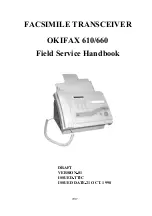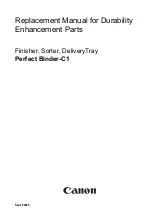
Overview of Sending Methods
3-11
3
Basi
c O
per
ation
s
Overview of Sending Methods
This section briefly describes the methods and advantages of the three main sending methods:
Memory Sending, Direct Sending, and Manual Sending.
■
Memory Sending
Memory Sending enables you to scan and send your documents fast, allowing you to get your documents
back quickly so you do not have to spend so much time standing around the machine. You can start
scanning documents for sending even while the machine is busy sending another document.
■
Direct Sending
The machine dials the number, connects the call, and then scans and sends the document one page at a
time. Direct Sending is slower than Memory Sending, but because this method bypasses the memory,
you can send a document ahead of other documents stored in memory.
■
Manual Sending
Manual Sending enables you to talk to the other party before you send the document. This method is
useful if the operator of the other fax machine must manually prepare the fax machine to receive your
document. For instructions explaining how to use manual sending, see Chapter 3, “Sending Documents”,
in the Facsimile Guide.
Memory Sending
1
Place your documents on the machine.
For instructions explaining how to place your documents, see “Setting the
Document on the Machine”, on p. 2-2.
NOTE
•
You can adjust the resolution, contrast, and document type for scanning. (See “Adjusting
the Scan Settings”, on p. 2-4.)
•
You can also specify a sender’s name with [TTI Selector]. (See Chapter 3, “Sending
Documents”, in the Facsimile Guide.)
DOCUMENT READY
















































